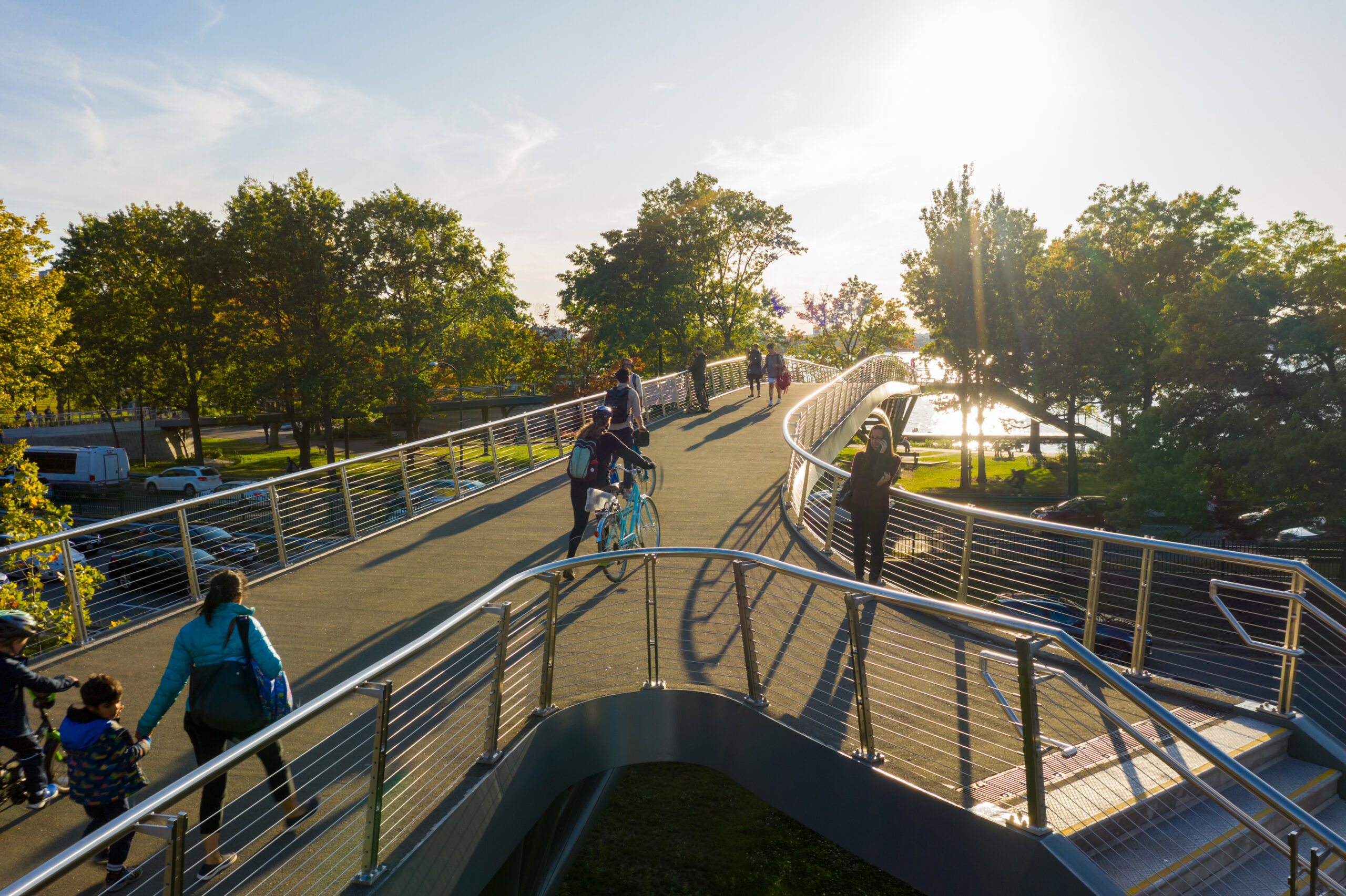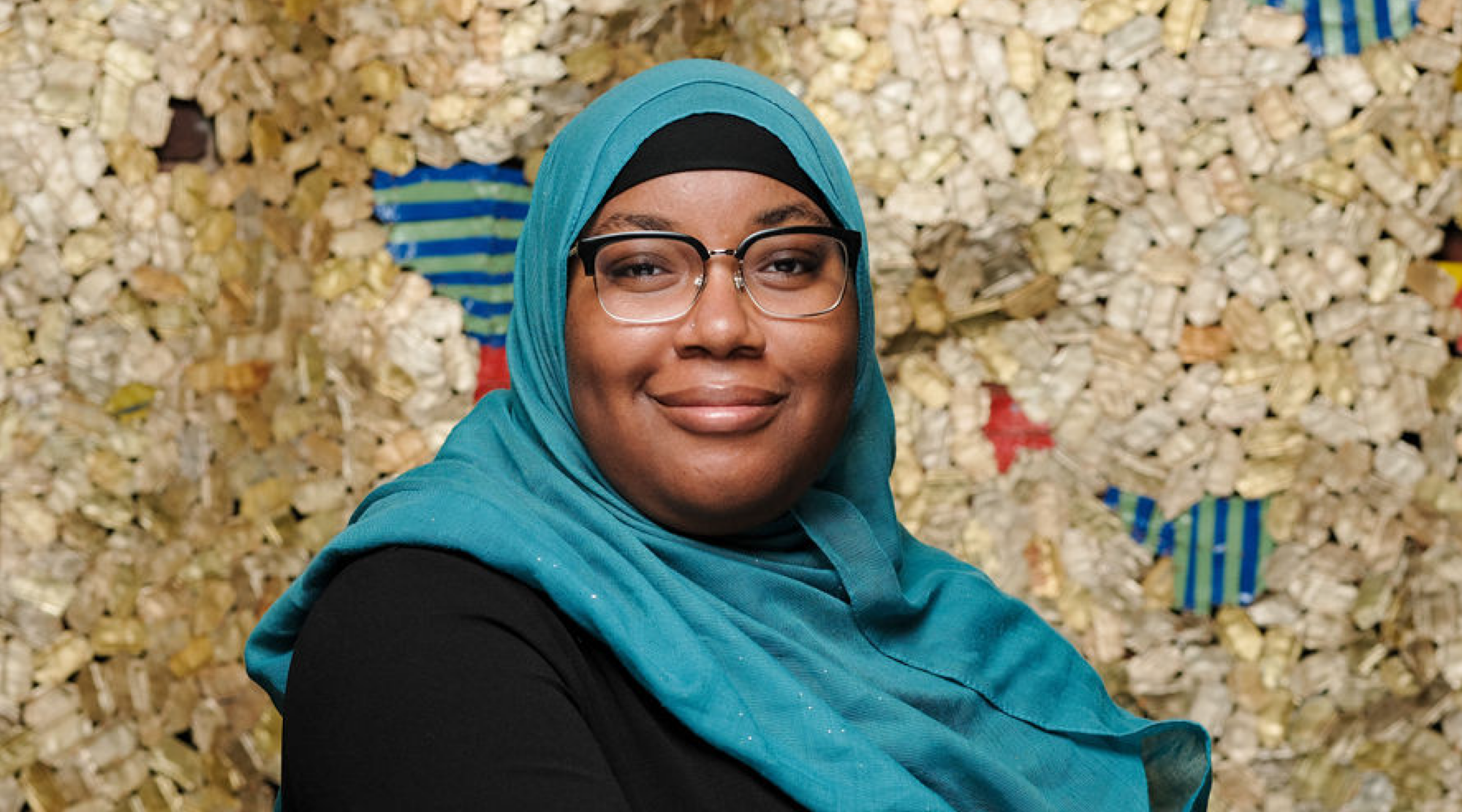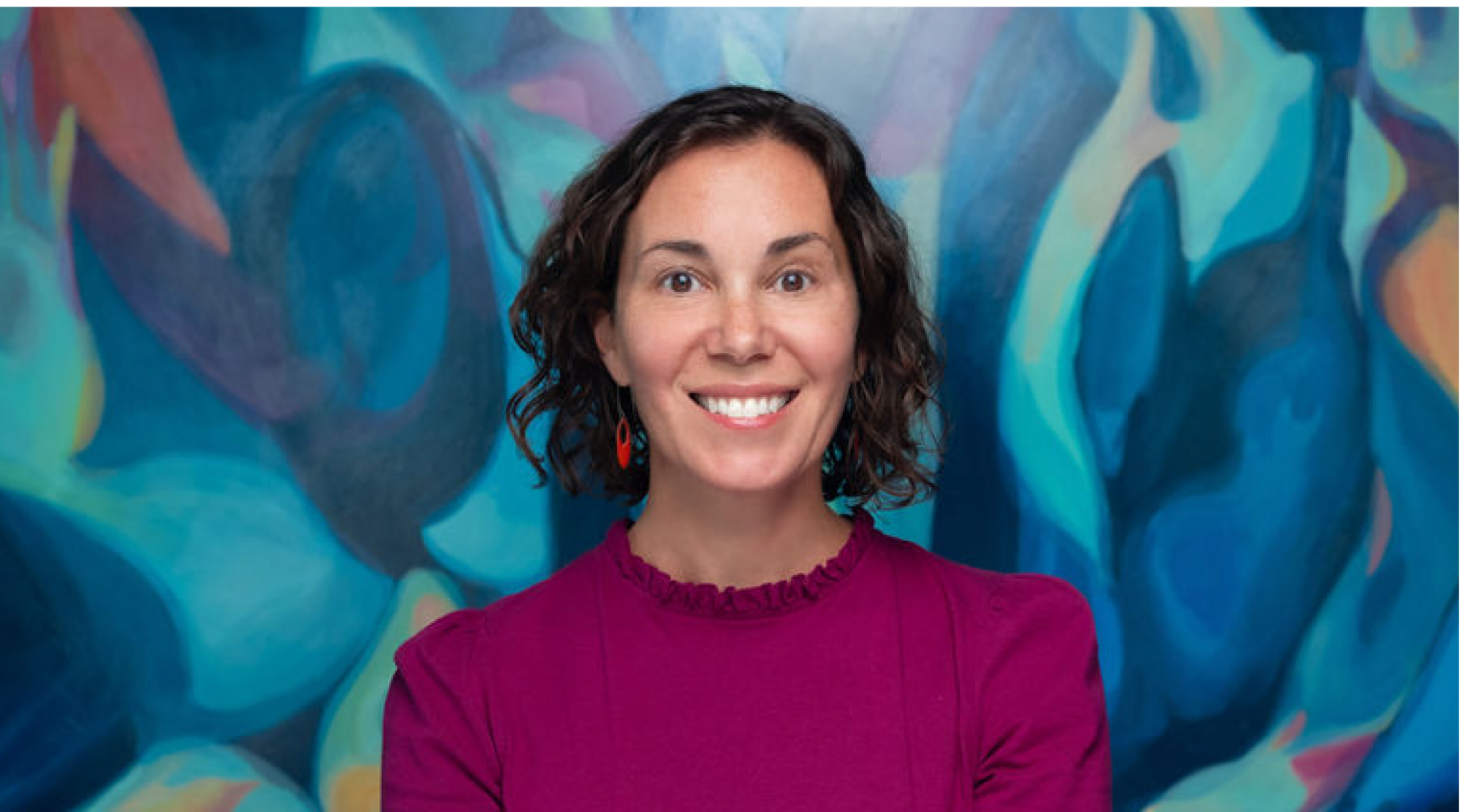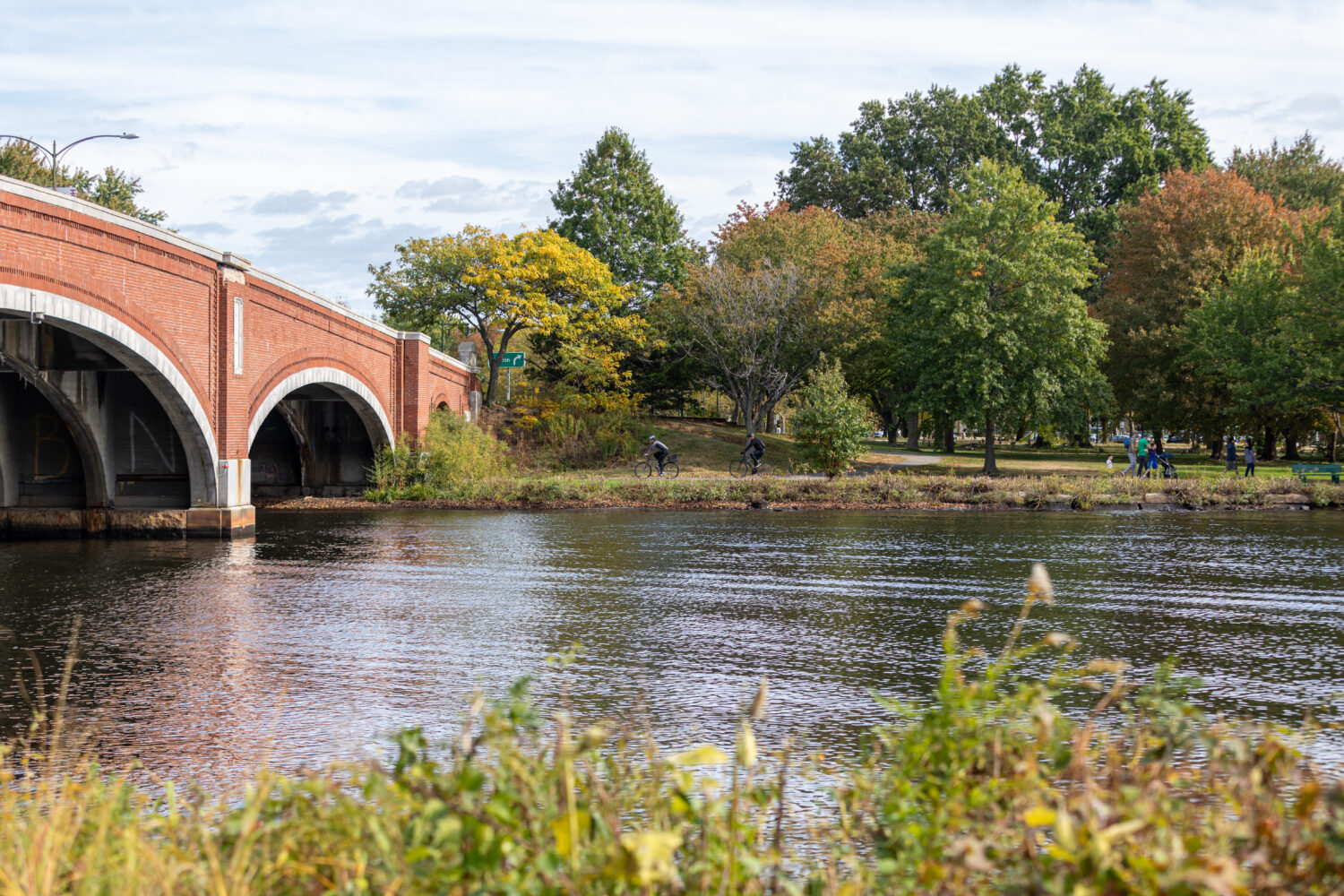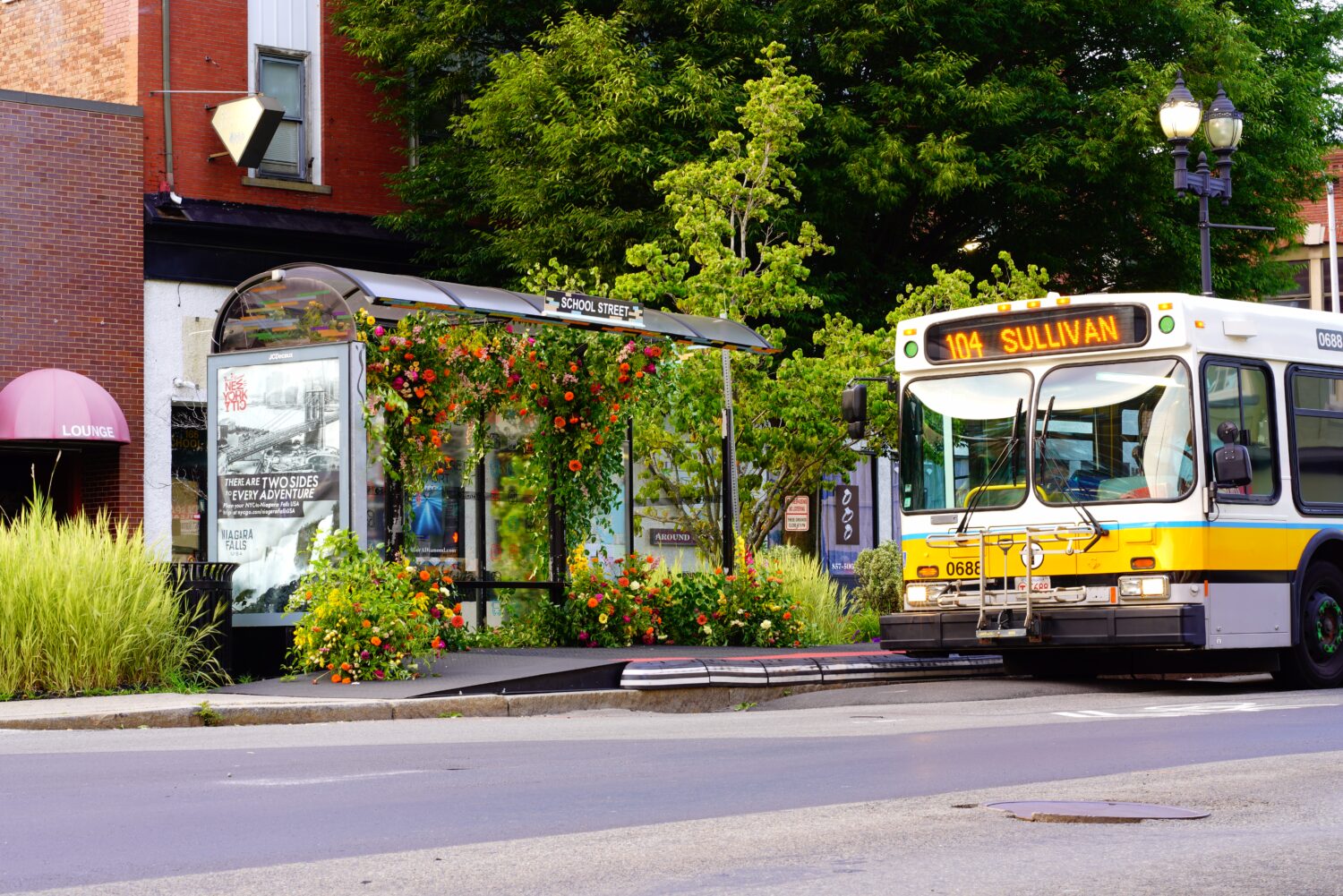Barr’s Climate Program began in 2010 with the goal of helping Boston and Massachusetts reduce greenhouse gas emissions in the energy and transportation sectors – the two largest greenhouse gas contributors in the state. In 2015, the transportation work became Barr’s Mobility Strategy, with a dual focus on transportation and how we design our communities.
With all that has changed in the world since 2015, and with the Foundation adopting a new value to center racial equity, we recently embarked on a strategy refresh process, and leaned into new possibilities for how to better express the scope and ambitions of our Mobility grantmaking.
A Changing World and Changing Work
In 2020, COVID-19 altered every facet of people’s lives – including transportation. More people than ever started working from home. The use of public transportation and driving declined dramatically, while biking and walking increased in many locations. Traffic patterns and congestion shifted. People also started thinking about and using public spaces differently – not just parks, but sidewalks and streets – and these became vitally important for people’s physical and mental health. Meanwhile, Spring 2020 brought new attention to race-based violence, which led many people across the country to learn more about the long history of colonization and anti-Blackness in the United States, including the role of transportation in that history.
These changes prompted several shifts in Barr’s Mobility grantmaking through 2020 and 2021, including:
- funding more efforts that address the negative impacts of transportation and land use policies on people of color, such as supporting advocacy around transit affordability and equitable fare enforcement;
- supporting projects to help people enjoy walking, biking, and public spaces as approaches to get outdoors while maintaining physical distance; and
- funding grantees’ efforts to be more diverse, inclusive, and equitable, including professional development and coaching for people of color, leadership training to manage boards, and racial equity training and planning.
In 2022, we felt it was time to take stock of these changes, what we learned along the way, and to refresh the mobility strategy to better align with current contexts and needs.
Key Lessons From Grantmaking
To look forward, our first step was to look back. We wanted to reflect on our role and the power we hold as grantmakers, what worked well, and our mistakes. Four key lessons stood out for us:
- Our role is not to set the agenda, but instead to provide support as communities do – When we’ve tried to set the agenda, projects have floundered as they weren’t priorities for the communities they intended to serve. Additionally, we missed opportunities for partnerships because people assumed their needs weren’t a part of our priorities. To be effective, we must start from a place of humility, with the recognition that solutions come from the people closest to the issues. We’ve seen the most progress when we’ve engaged, supported, and co-created strategies and campaigns with our partners in these ways.
- Effective policy advocacy requires collaborations rooted in community needs – By funding multiple groups to work on the same issue without intentionality encouraging relationship-building and collaboration, we reinforced the idea that policy solutions can develop in silos. This lack of alignment has led to individual organizations failing to advance their policy objectives. Our recent work to support opportunities for collaboration between mainstream and grassroots organizations, in addition to training on racial equity, has helped to inspire new partnerships that can be more effective in driving policy change.
- We have an active role to play as conveners, honest brokers, and matchmakers – While we strive to step back and let our grantees and partners lead the way, we’ve learned that we cannot underestimate the power of bringing people and organizations together. This is true both among our nonprofit partners, and within government and the business community.
- Joy and rest are essential to long-term work – In addition to the last three years being especially stressful, mobility work is always challenging. The problems are systemic; progress happens over decades not months or years; and there is urgency in the work – it impacts people’s lives today and every day. We realized we needed to lean into the role we can play to nurture and sustain the mobility community.
Where We’re Headed
By digging into our work, we affirmed our commitment to the overarching goal of reducing transportation-related greenhouse gas emissions in Massachusetts. The refresh process helped us clarify that our role in advancing this goal combines support for:
- policies and projects that advance the development of a low-carbon transportation system (e.g., walking, biking, transit, and other shared modes), and
- community planning and development practices that make it easy for people to use that system to get what they need.
Our work is built on a diverse set of partnerships with community-based organizations, advocates, municipal and state agencies, researchers, the business community, and others involved in design, planning, policy development, and implementation.
In our strategy, we incorporated the new approaches we had adopted since 2020 to ensure they would continue. This included uplifting the following in the strategy:
- Barr’s value of centering racial equity – Recognizing the unique ways in which transportation and planning policies have been used to perpetuate racial inequities and resulted in an overdependence on greenhouse gas-emitting modes (e.g., cars), we understand that the Mobility strategy has an important role to play in making racial equity a central aspect of efforts to address climate change.
- Community voice and engagement – Recognizing that people will embrace low-carbon transportation options only when the transportation system aligns with their needs, and understanding that the most effective solutions arise from engaging people in the process, it becomes clear that it is essential for policymakers and practitioners to involve communities throughout the policy development and project planning phases. We are firmly dedicated to fostering authentic and inclusive community engagement.
- The potential to foster more collaboration within the Climate Program and across other Barr programs – Even as our work continues to be focused on mobility-specific goals, we see an increasing number of opportunities to collaborate across the Climate Program, and with the other programs and special initiatives at the Foundation.
We remain devoted to supporting the reduction of transportation-related emissions in Massachusetts, for the benefit of communities across the state and the globe; and focused on maintaining strong relationships with existing partners while staying open to new ideas and partners. Together, we can reduce and prevent climate change through equitable solutions for transportation, community planning, and development across Massachusetts.
